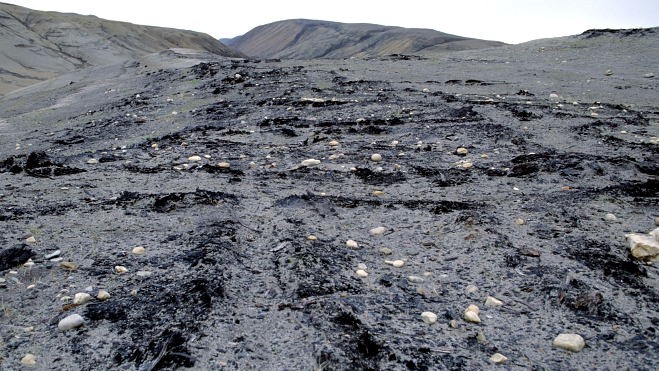If you were to visit some of Canada’s northernmost islands like Ellesmere or Axel Heiberg, you’d find a barren landscape without a tree in sight, but it wasn’t always this way.
University of Saskatchewan researcher Christopher West is a member of a team that collected and analyzed over 5,000 plant fossil samples from the Arctic. What they found was not only that the frozen tundra was once teeming with temperate forests, but they were remarkably similar to contemporary ones too.
“It’s very surprising how similar these ancient polar forests were to some of our modern forests,” said West in the UofSask press release. “I identified fossil plants related to many modern temperate trees: birch, alder, elms—even plants belonging to the grape family. Some of the fossils are related to trees now found only in east Asia.”
West’s research, which is the only comprehensive analysis of Canadian Arctic fossil plants ever completed, was published in Palaeontographica B. In the paper, the authors identified some 83 different plant types that existed during the Eocene era around 56 million years ago.
Earth was hotter than it is today during this time and Arctic areas would’ve been covered in darkness for long stretches of the year. Despite the lack of sunlight, the growth of these forests persisted, likely due to the influence of the heat more than anything.
However, that doesn’t mean the current climate crisis will lead to a resurgence.
“We won’t see a return to a forested polar region in our lifetimes, but it is important to remember that we as humans have become agents of climate change, and that our warming climate will have potentially dramatic effects on our modern ecosystems,” West said.
Fittingly, the authors note this research could help climate scientists evolve their understanding of how increasing temperatures affect forest ecosystems.
“The presence of these forests gives us an idea about what could happen over long periods of time if our modern climate continues to warm, and also how forest ecosystems responded to greenhouse climates in the distant past,” said West.
Most of the research for this paper was conducted while West was still a doctoral student under the supervision of Jim Basinger, a USask geology professor. Basinger commented that this work is the culmination of over 40 years of research on Canadian Arctic fossil plants by him and his students.
Future research will focus on fossils from Axel Heiberg dated to around 45 million years ago to gain more insight into the longterm effects of climate change on ancient forests.






































